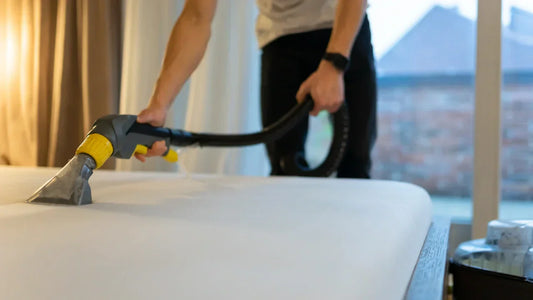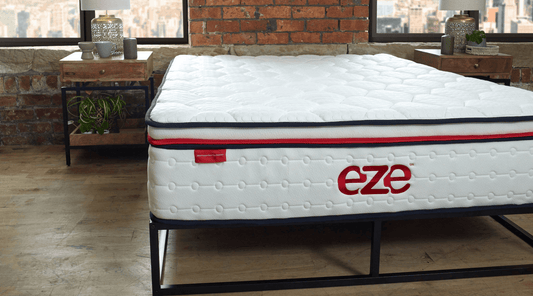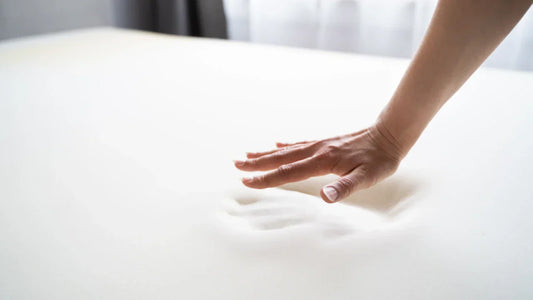Now we are in the New Year, getting a good night’s sleep is crucial to help us feel more energised, especially in the winter, a season that conspires to make us feel tired a lot of the time.
The shorter days and lack of sunlight can play havoc with our natural sleep/wake cycle and mean that we may struggle to wake up in the mornings.
We’ve put together some advice to help you get a good night’s sleep during the winter and feel more energised during the day.
Let in the Light

The winter days are short and the lack of sunlight triggers the production of melatonin, the “sleepy” hormone, meaning that we feel much sleepier during the day.
Sunlight, on the other hand, stops the body producing melatonin, so it’s essential to get as much natural light as possible to reinforce a good sleep/wake cycle.
The lack of sunlight also means we don’t get as much energy-boosting vitamin D. This vitamin has also been shown to improve both sleep quality and quantity.
Make sure you get out in the daylight at least once a day. When indoors, position yourself near natural light and open curtains and blinds fully. You can even use strategically placed mirrors to bounce light around the room.
Stay Regular

Even early birds can find it hard to spring out of bed in the depths of winter. It may be time to get up for work, but the dark and the cold is telling our brains that it’s much better to stay curled up warm in bed. Likewise, as the evenings draw in, it can be tempting to head to bed early.
However, maintaining your regular bed and waking times is the best thing you can do for consistent sleep quality. Sleeping for too long can have a knock-on effect on your sleep patterns, as you may struggle to fall asleep if you’ve had too much.
If you fancy an early night, go to bed with a book, so you’re relaxing but not asleep. If you find it difficult to get up on dark mornings, light clocks that wake you up naturally with light instead of sound can help.
Turn the Heating Off

Yes, you read that right!
The colder winter temperatures can have us cranking up the thermostats, but did you know it’s easier to fall asleep when the ambient temperature of the room is cooler?
Our bodies’ core temperature drops in preparation for sleep. A cooler bedroom not only helps us to drop off faster, but it also improves our sleep quality by regulating our temperature throughout the night, so we don’t overheat.
So, turn off the central heating before bedtime and use blankets instead. That way you can easily kick them off if you become too hot.
Also, consider buying a mattress with a breathable layer that will help to dispel body heat and keep you cool during the night.
Limit Alcohol

Winter can be a busy social season, with invitations to parties, pub drinks by a roaring fire or a glass of wine or two while enjoying a cosy night in.
While there are plenty of opportunities to raise a glass, too much alcohol can disrupt the quality of our sleep, preventing us from reaching REM, the most restorative stage of sleep.
To help, consider limiting yourself to just one or two drinks. And don’t drink alcohol just before bed — give your body time to process it (roughly an hour for each unit).
Exercise

Studies have shown that getting out and enjoying regular exercise can help improve your sleep.
It can be hard to find the motivation in the depths of winter, so ask family or friends to join you so you can motivate each other. A brisk wintery walk or run around the park will give you a boost of vitamin D as well. Can’t face the outdoors? Why not try a yoga or HIIT class or book a kickabout with some friends?
Try not to exercise too close to bedtime, as it may stop you dropping off. Allow at least two hours for your heart rate to come down and your core temperature to drop.
We hope our winter sleep advice will help you to enjoy some restful slumber this season.









